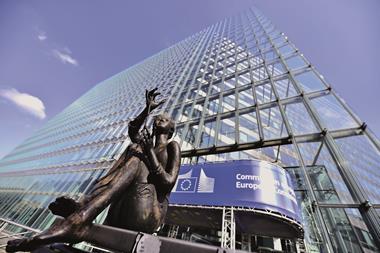UK - Frequent valuations may now be harming property funds' performance, according to experts speaking at the Investment Property Databank's UK 2008 Benchmark launch today.
Property experts debated whether monthly and quarterly property valuations are having a negative impact on funds' performance and causing problems for borrowers and banks by lowering investor confidence in the market.
Property valuations used to be just once a year but the financial services and property industry has gradually shifted valuations to be conducted more regularly on a quarterly basis over the last couple of years, though it seems this is now having a negative impact.
In particular, Jenny Buck, head of property multi-manager at Schroders, said: "There are going to be some investors in real estate at the moment whose returns are going to be massively diluted. But I think transparency is good and I think we have gone too far to start clawing it back.
She continued: "It's causing us a lot of hurt and pain and I think we may see some opportunity funds in the future say ‘I am only going to do a valuation once every three years'," she added.
Further issues raised at the conference included the impact of distressed debt, fund manager consolidation and the lot size discrepancies between large and more affordable ones.
According to Malcolm Frodsham, head of research for IPD, prices are currently 15% below trend but it could take a further 20% fall in values to bring the equivalent yield back to its lowest point in 1992.
Commenting on investment activity going forward, Buck said: "I think those that are brave, maybe over a five-year horizon, will make some good money but it may be a little rocky in the short-term and you're not necessarily not going to lose money in the short-term before you make your money back."
Buck pointed to a possible revival of Real Estate Investment Trusts (REITs) and said derivatives could potentially offer a solution for dealing with volatile pricing in the market, however she warned institutional investors tended to prefer buying physical properties.
"A lot of the investors in open-ended funds at the moment are pension funds and local authority pension funds, and it's not clear yet whether they can use derivatives in their portfolio management," she added.
According to Frodsham, 2008 was a "yield driven story" and was characterised by a "collapse in net investment", with IPD experiencing the largest withdrawal of capital from funds included in the indices.
The 289 funds represented in the IPD annual index for 2008 had were valued at £130.1bn (€142.7bn) and delivered a total return of -22.1%. Over the year, the funds conducted 1,374 sales which returned -22.3% and made 270 purchases which returned 0.7%. The 338 development projects generated returns of -26.3%.
Malcolm Hunt, head of UK services at IPD, said: "What we've seen is widespread of underlying property returns with developments generally pulling back on portfolio returns and sales, perhaps surprisingly, adding to those returns."
The best performing funds in 2008 were traditional estates and charities, returning -16.9%, of which structure contributed 1.5% and stock contributed 4.5%. Life and pension funds returned -25.8%, of which structure contributed -0.3% and stock contributed -4.3%.
Small and medium-sized life pension funds returned -23% and-22.5% respectively.
Retail warehouses were the lowest performing segment for the first time, while standard retail held up the best.
The largest spread was seen in the City and West End Offices, while retail warehouses experienced the tightest spread.
According to Hunt, risk adjustment did not add much to funds' performance, as an overall regression suggests 100 basis points (bps) added risk raises returns by only 20bps.
The annual and quarterly indices were virtually identical, with only small differences between the two caused by some poorer rental growth, shorter lease profile in the City and slight differences in portfolios' weighting.
If you have any comments you would like to add to this or any other story, contact Poppy Sketchley on + 44 (0)20 7261 4629 or email poppy.sketchley@ipe.com












